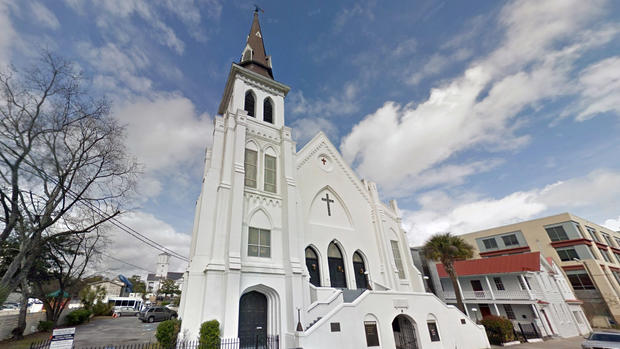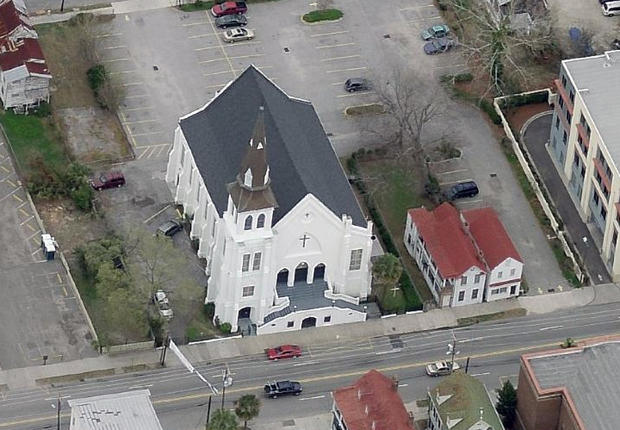Historic Charleston church has deep roots in African-American history
The Emanuel African Methodist Episcopal Church is among the oldest black churches in the South and has played a large role in African-American history from its inception.
On Wednesday night the historic church in downtown Charleston, South Carolina, was the scene of a horrific shooting when a white gunman opened fire during a prayer meeting. Nine people were killed including the pastor, in an assault authorities described as a hate crime. The shooting suspect, identified as 21-year-old Dylann Storm Roof, was taken into custody Thursday in Shelby, North Carolina, a four-hour drive from Charleston.
Reverend Dr. Norvel Goff, a presiding elder who oversees the church said Thursday on "CBS This Morning," that it is "a hallmark of African Methodism in the South."
"Mother Emanuel is noted for bringing about change and working together to build bridges, not only in the Charleston community, but across this nation and across this state," he said.
Emanuel AME Church, commonly referred to as "Mother Emanuel," is the oldest AME church in the south, according to the official Emanuel website. It has one of the largest and oldest black congregations south of Baltimore, Maryland.
AME churches can trace their roots back to Methodist communities. The church was founded after those of African decent were excluded and restricted from worshiping at predominately white churches.
Morris Brown, a free, black shoemaker and a Methodist, walked out of a predominantly white Methodist Church in Charleston in 1816, an AME Church website states. Brown formed the African Methodist Episcopal Church of Charleston and served as pastor from 1818 until 1822.
Denmark Vesey, another founding church member, led a failed 1822 slave rebellion that drove the church underground, said the Rev. Joe Darby, presiding elder of the AME Church's Beaufort District.
After Vesey's plot was reported, Vesey was hanged and the church was burned. Over 300 suspected participants were also arrested and 35 executed.
The church has been a pillar for African-Americans' moral and spiritual life, said Andre Rogers, a professor of church ministry at Columbia International University in Columbia.
"Emanuel has always been on the cutting edge of what's going in the black community of South Carolina," Rogers said.
"They've had their share of persecution, both natural and man-made, over the years and still have been a champion for the community in the midst of their own struggles," he added.
Violence against those worshipping at African-American churches has been going on for centuries, both before and during the Civil War, as well as during the Civil Rights Movement, Rogers said.
During the civil rights movement of the 1950s and '60s, Emanuel was a focal point of activism. The King Center tweeted a photo Wednesday of Dr. Martin Luther King Jr. and other civil rights leaders organizing at the church.
One of those killed Wednesday was the congregation's pastor, State Sen. Clementa Pinckney.
"There was no limit to where Rev. Sen. Pinckney would have ended up," Goff said." "But most certainly those of us who knew him, labored with him in the various segments of our community, he was a bridge-builder, he was a family man."
Goff said Pinckney is survived by a wife and two daughters.
Police Chief Greg Mullen said eight victims were found dead inside the church and the ninth died at a hospital.
"The only reason that someone could walk into a church and shoot people praying is out of hate," said Charleston Mayor Joseph P. Riley. "It is the most dastardly act that one could possibly imagine, and we will bring that person to justice. ... This is one hateful person." Riley said the shooting was an "unspeakable tragedy. Inexplicable."
More info on church history can be found here

